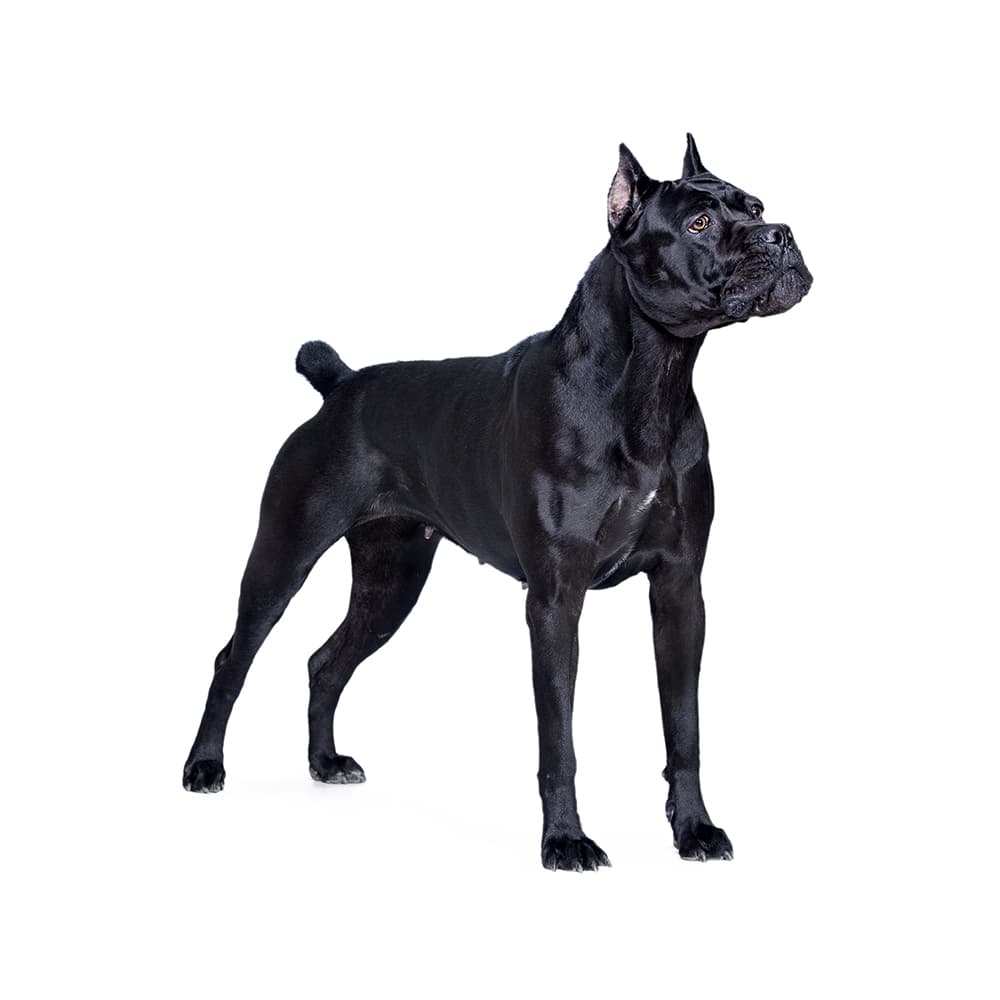Discover your dog's connection to this breed and 200+ others


Discover your dog's connection to this breed and 200+ others



The Cane Corso, also known as the Italian Mastiff, has a history that traces back to ancient times. This breed hails from Italy and is a descendant of Roman war dogs. The name 'Cane Corso' comes from the Latin "Cohors" which means "Guardian" or "Protector" of farmyards. For centuries, the Cane Corso served as a multi-purpose farm dog, fulfilling roles such as hunting, livestock herding, and property protection. The breed nearly went extinct in the mid-20th century but was saved by enthusiasts in the 1970s. The breed's popularity began to grow internationally in the late 20th century.
Cane Corsos are generally healthy dogs, but like all breeds, genetic screening is recommended. As a very large dog breed, they can suffer from orthopedic issues such as hip and elbow dysplasia. Genetic testing for conditions including degenerative myelopathy, progressive rod-cone degeneration, and canine Multifocal retinopathy 1 (CMR1) can assist veterinarians with diagnosis and proactive care, as well as help breeders identify affected and carrier dogs.
The Cane Corso is known for its calm, even temperament and its loyalty to its family. They are protective, which makes them excellent guard dogs, but they're also affectionate with their own people.
Despite their size and power, the Cane Corso is generally well-behaved and trainable. However, they require a confident, consistent owner who can provide firm guidance and socialization from an early age. These dogs are intelligent and eager to please, which can make training easier, but they also have a strong will and can be independent.
Cane Corsos are usually good with children and can get along with other pets if properly introduced and socialized. However, because of their size and strength, they should always be supervised around small children and animals.
A canine genetic lineage is a group of individuals or entire breeds that descended from common ancestors predating modern breed formation. Often these lineages are associated with a ‘type’ of dog with a unique historical working role and associated behaviors (e.g., herding, scent hunting, etc.).
Mastiff and bull-type breeds have strong, muscular builds. Both mastiff and bull-type breeds are protective and loyal, which are essential traits for this breed as guardian dogs and as companions. Although they appear imposing, many of these breeds are known for their gentleness and affection towards their families. They are a great example of loyal guardian dogs.
Example breeds with ancestry from this lineage include French Bulldog, St. Bernard, and Bullmastiff.
The plural of Cane Corso is Cani Corsi.
Their coat is short but not smooth. It is said to be cow-like in texture, and that its coarseness and thickness make it completely waterproof.
The Society Amorati Cane Corso (Society of Cane Corso Lovers) was formed in 1983.
The Cane Corso is famous among many Italian painters, gracing many a canvas.
https://vgl.ucdavis.edu/test/cmr1
https://www.fci.be/Nomenclature/Standards/343g02-en.pdf
https://www.akc.org/dog-breeds/cane-corso/
https://vgl.ucdavis.edu/test/pra-prcd
https://vgl.ucdavis.edu/test/degenerative-myelopathy
Recommended by top vets with decades of experience
21 breeds
64 genetic health markers
50 genetic trait markers
